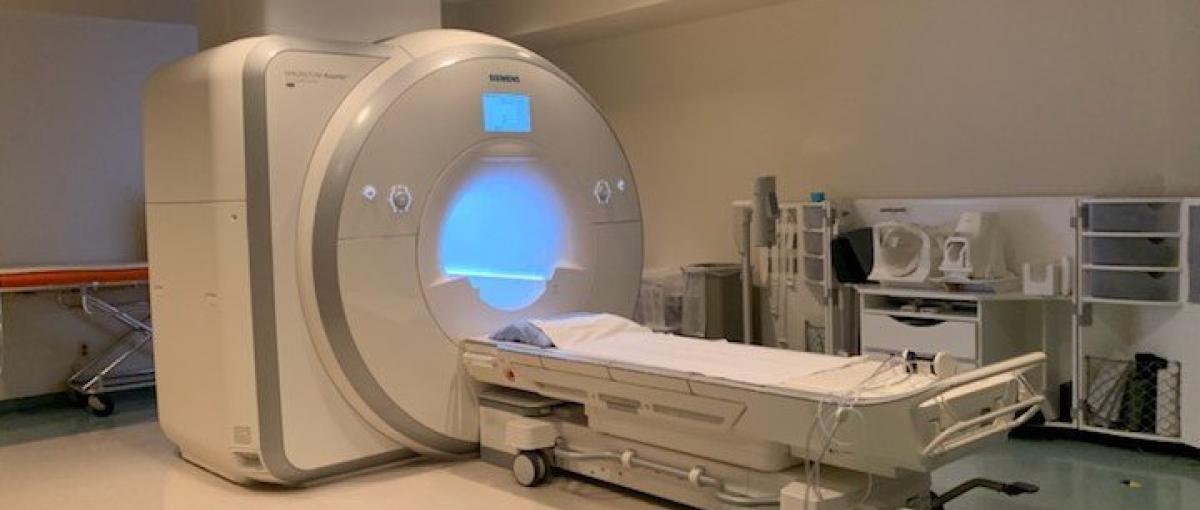Alberta's only sedated MRI exams for adult outpatients
Patients with severe anxiety or special medical needs can be sedated for an MRI at Misericordia hospital

November 25, 2019
By Katrina Lingrell, Senior Advisor, Digital Communications, Covenant Health
At just 18, Ryan Hauck has had more MRIs than most people will have in their lifetime. He’s had dozens since he was just one year old, when doctors discovered his tumours.
Ryan has neurofibromatosis, a disorder that causes tumours to form on nerve tissue and affects motor skills. He has three brain tumours, one on his spine and several in his right arm, as well as cognitive and developmental delays. Though Ryan’s tumours are non-cancerous, they need to be monitored closely to ensure they haven’t turned cancerous or cause further complications.
While his condition hasn’t stopped Ryan from staying active and enjoying his favourite sports, including basketball and hockey, annual MRIs are an important part of his care. Ryan’s appointments can last two to three hours—more than twice as long as most MRI appointments. He needs to be still during the test. To make sure the scans are clear and to minimize his discomfort, Ryan is sedated for his MRIs.
That means he needs to go to the Misericordia Community Hospital, the only facility in Alberta to offer sedated MRI exams for adult outpatients. The Misericordia performs about 30 sedated MRIs each year, and people come from all over the province to access the special service, which caters to patients with severe anxiety and medical needs that make it difficult or impossible for them to be still during an MRI, such as neurological conditions or developmental delays.
“Who needs to be anesthetized for an MRI ranges, but family members of our patients are very grateful because without anesthesia, some people just can’t have an MRI,” says Chris Lindsay, Manager of Diagnostic Imaging at the Misericordia and Grey Nuns hospitals.
Without the option to be sedated during the MRI, these patients could risk not receiving diagnoses or important information about their conditions, says Chris.
MRIs can be challenging even for patients who don’t have conditions that require sedation. The MRI equipment is loud—between 90 and 110 decibels, or about as loud as a motorcycle. This combined with the small enclosed space is enough to induce a bit of anxiety in most people.
For patients who don’t need to be sedated, staff try to ease anxiety about the test, explains Misericordia MRI Technologist Karen Kristjanson. Common techniques include covering the patient’s eyes, placing a mirror in the machine so the patient can see the technologist and having a loved one in the room during the exam. Patients can even listen to music through headphones.
Kim and Ryan had grown comfortable with the routine of him being sedated through annual tests done at the Stollery Children’s Hospital before he turned 18 and needed to go to the Misericordia. His first visit in June went smoothly, and he was comfortable speaking with staff before being sedated, says his mom.
“We’re old hat at this,” Kim says. “The staff were great with Ryan and he was even talking sports with the doctors.”
Kim and Ryan were relieved that his latest scan showed one brain tumour had shrunk so much that doctors could barely see it. Knowing his scan did not show a negative health shift is a relief, and it means Ryan can continue his passion for sports, says Kim.